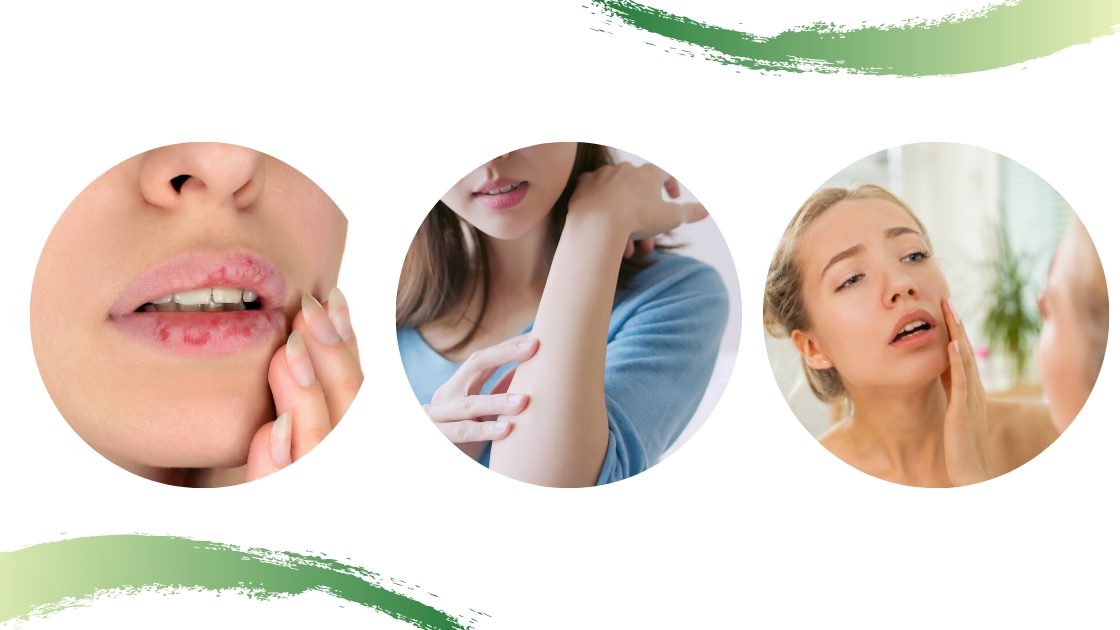How to Care for Dry Skin : Dry skin goes hand in hand with a lack of moisture. When your skin is derived from hydration, for whatever reason, it gets dry. It can happen to your face, hands, or body.
Dry skin can happen to anyone
Dry skin is a common condition that in mild cases can be corrected at home, with over the counter or DIY products. However, the more severe cases need careful treatment under the supervision of a certified dermatologist.
A variety of factors may be responsible for your dry skin:
- Using unsuitable cleansers or harsh soap for washing your skin
- Frequent baths
- Cold or dry climates
- Aging
- Allergies
- Products with alcohol, dyes, or fragrance
- Unsuitable laundry detergents
- Hot water
- Heat
- Certain medication
- Harsh exfoliants and scrubs
- Acids included in skincare products
- Skin conditions such as eczema
- Swimming in chlorinated pools
- Excessive sun exposure
- Thyroid
All of these factors cause a damage to the skin barrier which results into dehydration and loss of moisture in your skin. You need to treat the condition not only because it feels uncomfortable, but also because your skin is the outermost barrier of the body.
It protects the body against bacteria and germs that can cause infection inside the body.

You know it when you get a dry skin
What are the symptoms of dry skin? It’s not a hard guess. If you suspect your skin of dryness, look for:
- Itching
- Rough skin
- Scaling and flaky skin
- Peeling skin
- Painful and bloody cracks in the skin
- Redness
- Rashes
- Sensitivity
Sounds familiar? Well, you should know that once your dry skin is diagnosed, you have 2 paths to follow. Leave it like that, which is not really an advisable option, or treat it. And in case you decide to treat it on your own, then again you have 2 options:
go for over the counter products, or stick with DIY home remedies. While both options are good, you need to remember that home remedies run the risk of worsening the situation.
This is because the chances are for you to apply irritating ingredients disregarding your skin type, and don’t consider the right proportions or frequency of use.
Selfcare will adequately address mild cases for sure. You just need to make some changes, and everything will fall back to normal.

How to treat dry skin
The most important cure for your dry skin is restoring hydration to the skin, without throwing the amount of sebum (natural oil produced by the oil glands of the skin) and moisture of your skin off balance.
Again, please bear in mind that this guide is a general entry for mild cases of dryness. In case your condition is caused by a specific health condition or disorder, or its too harsh to tolerate, make sure to visit a doctor and take our general guide as only a source of information.
Treating a dry skin effectively means you need to address the factors causing the condition in the first place. Sometimes you can simply remove what’s been wrecking all the havoc, for example a specific cleanser.
But sometimes you can’t do that, as when you live in a cold or dry climate and your epidermis (the outermost layer of the skin) cannot keep up with the loss of moisture. In this case, you need to make adjustments to your everyday life or use special products. So, depending on the reason why you get a dry skin, you may need to follow a specific treatment.
Lifestyle adjustments and useful ingredients that help dry skin
- Moisturize after washing your face or taking a shower. Depending on your skin type, you can make use of a variety of moisturizers out there. They usually fall under two categories of oil-based and water-based. An ideal moisturizer restores hydration to your skin and seals it in, as such, it needs to have a combination of humectants (which attracts moisture) and emollients (which lock in the moisture and prevent its loss).
- Some of the humectants include ceramides, hyaluronic acid, glycerin, lecithin, and sorbitol.
- Some of the emollients include lauric acid, linoleic, and linolenic.
Apply your moisturizer right after washing your face or body. This will help the attraction and locking of moisture in your skin.Another noteworthy point is that you can the colder seasons of the year, you can opt for oil-based creams which form a thick layer over your face and provide excessive protection.
While for the summer, you can use lighter water-based products.Also, creams and ointments are normally more effective than lotions. Lotions are more prone to causing irritations.
Instead, you can use creams and ointments loaded with shea butter, coconut oil, olive oil, or jojoba oil.To relieve chapped and cracked lips, you can use lip balms. Your lip balm shouldn’t cause a tingling or itching sensation when you apply it.
Some of the ingredients you need to look for in a product include mineral oils, petrolatum, and petroleum jelly.
- During the cold season or the hot and dry months of summer, you can use a humidifier at home. This will compensate for the dryness of the air where you live, and replenish the surface levels of your skin with hydration.

- Shower for no longer than 5-10 minutes every day. Also, use lukewarm water rather than hot water. If you take long baths and use warm water, you will deprive your skin of its natural oils and make it excessively dry. Paradoxically, when the skin is dried too much, it will produce even more oil and sebum to make up for the lost oil. So, you will enter a never-ending loop of showering and ending up with either too dry or too oily skin which needs more washing.
- Use soap-free cleansers, because soap completely washes the oil produced by your skin. This is while your skin needs a certain amount of sebum. Try to minimize your use of soap, especially those loaded with alcohol, fragrance, or deodorants.
- Avoid scrubbing or rubbing your skin too hard in the bath. Instead of sponges or washcloths, you can use more gentle touches in the shower and dry your skin by patting it by a towel.
- Avoid cloth softeners and laundry detergents, as they are prone to causing irritation and itching.
- Use fabrics that don’t cause irritation. For example, wool is an extremely uncomfortable material when it comes to itching. You can replace it with natural fabrics such as silk or cotton.
- Don’t scratch your skin if it feels itchy. Scratching will damage your skin and cause bleeding and maybe infection. It is better to use a soothing moisturizer, when you have the urge to scratch.
- During the winter, try to cover as much of your face and body as possible. You can bundle up your face and use gloves.
- While working with chemicals or simply doing house work, wear rubber gloves. Chemicals, water and dust are not friendly to the skin and can even cause allergies. It’s also a good idea to wear gloves when you go outside, under high temperatures.
- Drink plenty of water to restore hydration to your body from the inside.

- Don’t wash your face twice a day. Daily skincare routines often recommend washing of the face for two times a day. However, if you’re having dry patches, you can contend with washing your face once at night. Make sure to use proper face wash and toners to remove impurities and unclog your pores.
- Don’t exfoliate your skin every day. Exfoliating chemicals and scrubs run the risk of excessively scaling your skin. You can do this once a week and keep irritation at a minimum.
- Eat foods rich in antioxidants and omega-3. Besides fighting free radicals, antioxidants can minimize the effect of irritants and toxins on your skin.
How to prevent dry skin:
If you adjust your lifestyle in a way that incorporates all of the methods we just mentioned, you will not only treat existing dry patches, but also prevent future dryness.
The most powerful measure would be to maintain a healthy routine and stick to it. A proper skin care routine for dry skin includes:
- Clean your face daily with proper products which don’t over dry your skin or cause irritation. You can wash your face only once at night, in case the normal twice a day regime proves too much for your skin
- Moisturize your skin with products which match your skin type. Petroleum jelly is one of the effective products used for dry body skin.
- Use sunscreen with SPF 30 or higher in the morning, to prevent the damage posed by the sun.

When to see a doctor?
Acute dry skin may either be caused by a serious factor or lead to serious issues. If any or a combination of the symptoms we mentioned before try your patience to the point that it causes inconvenience for you, you know it’s time to see a doctor. This includes:
- excessive peeling cracking or bleeding of the skin
- increased sensitivity
- swollen skin with infection or inflammation
- intense scratching
- inability of home remedies and over the counter products to cure the condition
- involvement of another condition or simultaneous occurrence of another disease as the main reason for your acne
Some of the issues that fall under the category of acute dry skin are:
- severe atopic dermatitis or eczema
- psoriasis
- seborrheic dermatitis
- ichthyosis
Make sure to explain all your symptoms and ask all your questions. A potential remedy may include topicals that need to be rubbed over the dry patches, and possibly an adjustment of diet in order to eliminate irritants or factors that cause the dryness.
Your dry skin may not be a serious issue, but it needs timely treatment. Let us know about the measures you take and their effectiveness. Meanwhile, you can follow us on our social media channels for useful information delivered to you more instantly.
Why does it need to be treated?
Skin can be cracked due to dryness which will let the bacteria enter and cause infection which further might turn into a big problem. There are high chances that the fissured skin might bleed and cause complications. To avoid all these it needs to be treated well and taken care of in the future.
Prevent your skin with these easy skincare steps:
Exfoliatin: Exfoliatin is important for dry and parched skin but it’s better not to use chemical exfoliation if your skin is too dry then many exfoliants cannot suit your skin. There are a few products that are a must for the dry skin type, AHAs, it is water-based and helps the skin to lock moisture. Glycolic acid helps to prevent dead skin cells. The appliance of glycolic acid on a daily basis will help the skin in getting more smoother and soft touch.
Gentle cleanser: Many soaps and face washes might include harsh chemicals which is a big no for dry skin type try to avoid products that include alcohol or sulfates. Use products that contain Hyaluronic Acid. Hyaluronic acid, Glycerin, Ceramides, Aloe vera, Niacinamide and pH-balancing properties.
Moisturizing: Moisturizing your skin will help in ways it has many benefits like your skin will feel softer and it will be more elastic and also will keep your skin hydrated but there is also a thing you can’t use every moisturizer on your face only those which are suitable for your skin type. The best way to get moisturizer inside your skin is to use it after a shower on a daily basis or on damp skin.
How do you treat dry skin naturally?
Stop baths and showers from worsening dry skin. ... Apply moisturizer immediately after washing. ... Use an ointment or cream rather than a lotion. ... Wear lip balm. ... Use only gentle, fragrance-free skin care products. ... Wear gloves. ... Choose non-irritating clothes and laundry detergent.